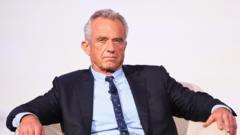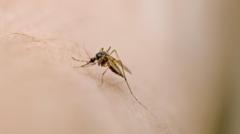As vaccination rates dip, experts warn that the resurgence of polio in the U.S. could become a grim reality. Historical context provided by families affected by the virus highlights the severity of the issue, while vaccine skepticism raises further concerns.
Concerns Grow Over Potential Polio Resurgence Amid Decreased Vaccination Rates

Concerns Grow Over Potential Polio Resurgence Amid Decreased Vaccination Rates
Lagging vaccination efforts raise fears of polio's return in the U.S., with skepticism surrounding the vaccine contributing to lower immunization rates.
Polio, a disease once feared in the United States, may be poised to make a comeback due to dwindling vaccination rates. While the original strain of the polio virus has been largely absent from American shores, an associated strain connected to the oral vaccine used internationally has recently emerged in Western regions.
For many parents, polio is a distant memory—averted by effective vaccination programs that once led to tens of thousands of infections annually. In recent years, the U.S. has only seen a single case linked to international travel, suggesting an impressive decline. However, experts worry that any further decline in vaccination efforts or access to vaccines could reverse this progress.
Concerns have been compounded by public figures such as Robert F. Kennedy Jr., a well-known vaccine skeptic, who argues that the story of polio's near eradication is a myth. His statements, which question the safety and efficacy of vaccines, reflect a larger movement that may sway public opinion and increase vaccine hesitancy.
In 2023, Kennedy cited instances where early polio vaccine batches were purportedly contaminated, linking them to greater cancer risks. Although investigations did confirm contamination issues, they did not find a credible connection to cancer—a claim that experts continue to dispute.
As vaccinations slow, vigilance becomes paramount in safeguarding public health against potential outbreaks of this debilitating disease. Parents, healthcare providers, and policymakers must address rising skepticism about vaccines to maintain the legacy of polio eradication efforts.






















